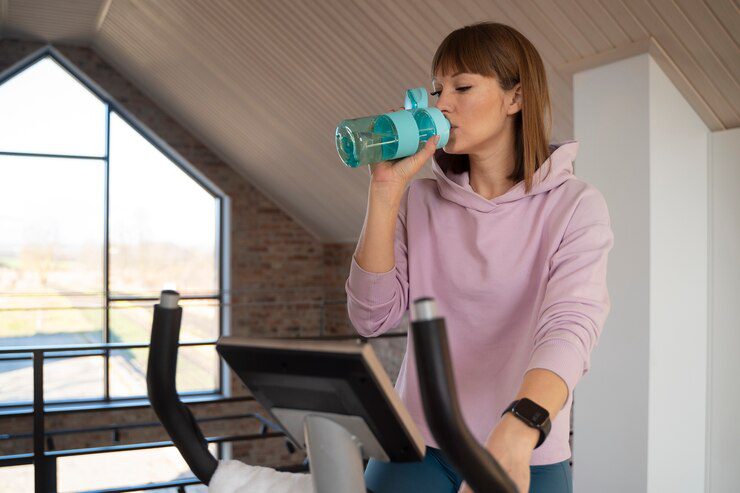Push yourself to the limit. Feel the burn in your muscles, the pounding in your chest. You’re crushing your workout, a warrior in the gym or a gazelle on the track. But with every bead of sweat dripping down your forehead, a silent threat lurks – dehydration. High physical exertion is a recipe for fluid loss, and staying hydrated is crucial for optimal performance and recovery. Here’s where isotonic drinks enter the arena, promising to be your secret weapon against dehydration during those intense training sessions. But do they really live up to the hype? Let’s dive in and separate the science from the sweat-drenched marketing.
The Dehydration Dilemma: Why It Matters During High Physical Exertion
During high physical exertion, your body is a furnace, burning calories and generating heat. To cool down, you sweat. This is fantastic, but with every drop lost, essential fluids and electrolytes also disappear. Dehydration, even mild levels, can be a game-changer. Studies have shown it can lead to decreased exercise performance, fatigue, muscle cramps, and even heatstroke. It’s like your body is a finely tuned engine, and dehydration throws a wrench into the works.
Enter the Isotonic Contender: How These Drinks Aim to Replenish
Isotonic drinks are formulated to be similar to the body’s fluids in terms of their concentration of carbohydrates and electrolytes (salts). This means they’re absorbed quickly and efficiently by the gut, unlike plain water which can dilute electrolytes further. Isotonic drinks aim to be a one-two punch, replenishing fluids while replacing lost electrolytes, like sodium and potassium, that are crucial for muscle fatigue recovery and function and nerve transmission. Think of them as a pit stop for your body during a high-octane race, providing the fuel it needs to keep going strong.
The Science of Sweat: Does the Hype Match Reality?
The jury is still out on whether isotonic drinks are a magic bullet for everyone during high physical exertion. Here’s a breakdown of the research:
Hydration Hero? Studies support isotonic drinks for activities lasting longer than an hour or in hot and humid conditions. They can help maintain fluid balance and potentially improve performance.
Not a Silver Bullet: For shorter workouts or moderate-intensity exercise, plain water may be sufficient.
Sugar Concerns: Many isotonic drinks are loaded with sugar, which can cause stomach upset and isn’t necessary for everyone. Consider low-sugar or sugar-free options.
Individual Needs: Everyone sweats differently. Some athletes might lose more electrolytes than others, requiring a more potent electrolyte replacement solution.
Beyond the Bottle: A Holistic Approach to Staying Hydrated During High Physical Exertion
While isotonic drinks can be a valuable tool in your hydration arsenal, they’re not the only answer. Here’s a multi-pronged approach to staying on top of your hydration game:
Hydrate Preemptively: Don’t wait until you’re thirsty to drink. Sip water throughout the day, especially before, during, and after your workout.
Listen to Your Body: Thirst is a good indicator, but don’t rely on it solely. Pay attention to your urine color. Darker urine suggests dehydration.
Consider Your Sweat Rate: If you’re a heavy sweater, isotonic drinks might be more beneficial. Track your sweat loss during workouts and adjust your hydration strategy accordingly.
Post-Workout Replenishment: Don’t forget to rehydrate after your workout. Aim to replace fluids lost during exercise.
The Final Rep: Isotonic Drinks – Friend or Foe?
Isotonic drinks can be a valuable tool for athletes and fitness enthusiasts engaging in high physical exertion. They can help with hydration, electrolyte replacement, and potentially improve performance, especially during longer or more intense workouts. However, they’re not a one-size-fits-all solution. Consider the type of activity, your individual needs, and the sugar content before grabbing a bottle. Remember, proper hydration is a marathon, not a sprint. With a combination of water, smart choices regarding isotonic drinks, and listening to your body, you can stay hydrated, perform at your peak, and ensure a smooth (and sweat-filled) journey towards your fitness goals. Now get out there and conquer your workout, one hydrated rep at a time!







